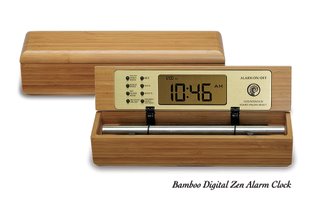
Utagawa Kuniyoshi
Before the electric lightbulb, people generally went to bed after dark and rose with the sun. If they stayed up after sundown, it was by the light of the fire, candle, or oil lamp—a low, warm light that eased their transition to sleep. But with the advent of electricity, light in our homes no longer matches what’s best for our bodies.
Most Americans now sleep an hour and a half less each night than they did a century ago, at great cost to health and safety, writes William Dement, M.D., Ph.D., of the Stanford University Sleep Research Center in The Promise of Sleep (Delacorte Press, 1999).
For the sake of productivity, people now treat sleep as a disposable commodity; fewer than 35 percent of American adults regularly get the seven to eight hours per night that researchers consider necessary. The irony is that burning the midnight oil actually lowers productivity by causing memory lapse, increased error rates, slower reflexes, lack of motivation, and short tempers.
When we sleep, our brains consolidate the day’s experiences into memory while our bodies re-energize our muscles and organs and regenerate cells. Researchers have identified several phases of brain-wave activity needed to experience the full benefits of slumber, yet it’s increasingly common for people to miss out on some of these stages.

Bamboo Digital Chime Clock, a calming timer and alarm clock
Researchers say we should pay attention to four primary factors in the sleeping environment:
- light
- noise
- temperature
- bed
Other factors can support your sleep haven. Soothing colors may relax your body and mind, putting you in the right mood for sleep; many people find lavender, blue, or light green appropriate. Minimizing electromagnetic fields near the bed is a good idea, too. The original Zen Alarm Clock in the triangle size only runs on batteries just for this reason. Finally, consider removing clutter, visual distractions, stimulating colors, bright lights, and television from the bedroom because their effects can stay with you even after the lights are out. Above all, pay attention to what works for you.
On the morning side of the equation, awakening gradually with the sun or the Zen Alarm Clocks gentle chime sequece is the healthiest way to go. In fact, one researcher points out that if your alarm clock should not startle you awake but waken you progressively and naturally. And think about what surrounds you when you first awaken. Feeling sensuous textures and seeing pleasant colors and objects in the morning light help start your day on a good note. Let yourself linger in bed for a while to ease the transition. One might consider purchasing a Zen Alarm Clock, the perfect alarm clock to awaken you gently and gradually with chimes instead of an electronic noise.
adapted from Natural Home, November 2003 by Carol Venolia

Zen Alarm Clock with Progressive Chime, set your clock as part of a relaxing bedtime routine
Now & Zen’s Chime Alarm Clock Store
1638 Pearl Street
Boulder, CO 80302
(800) 779-6383
Posted in Bamboo Chime Clocks, Chime Alarm Clocks, Japanese Inspired Zen Clocks, Natural Awakening, Now & Zen Alarm Clocks, Progressive Awakening